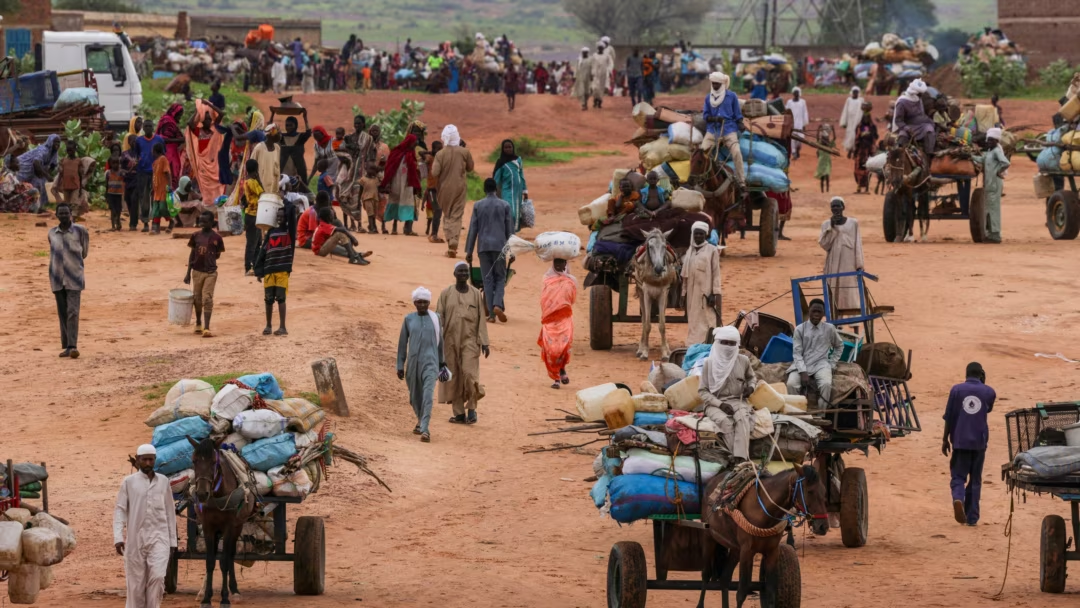Sudan’s warring parties say they are open for peaceful solutions
Sudan’s Warring Parties Say They Are Open for Peaceful Solutions
In a significant and hopeful development, Sudan’s warring parties have recently expressed their openness to exploring peaceful solutions to end the ongoing conflict that has plagued the nation. This shift in stance from both sides represents a potential turning point in Sudan’s turbulent history, offering a glimmer of hope for stability and peace in a country long beset by internal strife and humanitarian crises.
Background of the Conflict
The conflict in Sudan has deep roots, shaped by a complex mix of historical grievances, political struggles, and ethnic tensions. Key aspects include:
- Historical Strife:
Sudan has a history of conflict that includes the Darfur crisis, the South Sudanese civil war, and ongoing struggles in regions such as Blue Nile and South Kordofan. These conflicts have been driven by ethnic, political, and economic issues, leading to widespread violence and suffering. - Recent Escalation:
The current conflict escalated dramatically in April 2023, when violence erupted between the Sudanese Armed Forces (SAF) and the paramilitary Rapid Support Forces (RSF). This latest round of fighting has led to severe destruction, displacement of populations, and a worsening humanitarian crisis. - Humanitarian Impact:
The conflict has had a devastating impact on civilians, with millions displaced and in urgent need of assistance. Disruption of basic services, including healthcare, food, and education, has exacerbated the humanitarian situation.
The Move Towards Peace
The recent declarations of openness to peace talks by both the Sudanese Armed Forces and the Rapid Support Forces are significant:
- Statements of Openness:
Both sides have publicly indicated a willingness to engage in dialogue and explore peaceful solutions. This marks a departure from the previous stance of entrenched hostility and highlights a potential shift towards resolving the conflict through negotiation. - Role of International Mediators:
The international community has played a crucial role in facilitating dialogue between the warring parties. Organizations such as the United Nations, the African Union, and regional actors have been actively involved in mediating and supporting peace efforts. - Proposed Peace Initiatives:
Several peace initiatives and proposals have been put forward to address the root causes of the conflict. These include ceasefire agreements, frameworks for power-sharing, and mechanisms for addressing humanitarian needs.
Implications of the Peace Process
The move towards peaceful solutions carries several important implications:
- Potential for Stability:
A successful peace process could pave the way for political and social stability in Sudan. Restoring stability is crucial for rebuilding the country and addressing the many challenges it faces, including economic hardship and social division. - Humanitarian Relief:
Ceasing hostilities would facilitate the delivery of humanitarian aid and support to affected populations. It would enable the provision of essential services and assist in the recovery of displaced communities. - Political Reconciliation:
Peace talks could lead to political reconciliation and the establishment of inclusive governance structures. Engaging in dialogue can help address political grievances and promote national unity. - Regional and Global Impact:
Stability in Sudan would have positive effects on the broader region and the international community. It could enhance regional cooperation, reduce the spillover of conflict, and support global peace and security efforts.
Challenges and Obstacles
Despite the positive developments, several challenges and obstacles remain:
- Building Trust:
Establishing trust between the warring parties is crucial for the success of peace talks. Effective mechanisms for monitoring and verification will be needed to ensure compliance with any agreements reached. - Addressing Root Causes:
Resolving the conflict requires addressing the underlying issues that have driven the violence, including ethnic tensions, political exclusion, and economic disparities. Comprehensive peace agreements must tackle these root causes to achieve lasting solutions. - Security Concerns:
Ensuring a safe environment for peace negotiations and protecting civilians will be a major challenge. Addressing security concerns and preventing further violence will be essential for the success of the peace process. - Humanitarian Needs:
The urgent humanitarian needs of affected populations must be addressed alongside peace efforts. Providing adequate support and resources for recovery and rebuilding is critical for long-term stability.
The Path Forward
The path to peace in Sudan involves several key steps:
- Ongoing Dialogue:
Continuous dialogue and negotiations will be essential for reaching a comprehensive peace agreement. Engaging in meaningful discussions and addressing key issues will be crucial for achieving a sustainable resolution. - International Support:
The support of the international community will be vital for facilitating the peace process and providing necessary resources. International organizations and donor countries can play a key role in supporting peacebuilding and humanitarian efforts. - Inclusive Participation:
Ensuring that the peace process is inclusive and representative of all Sudanese stakeholders will be important. Engaging various political, ethnic, and civil society groups will contribute to a more comprehensive and effective resolution. - Reconstruction and Development:
Following a peace agreement, efforts to support reconstruction and development will be necessary for rebuilding the country and fostering long-term stability. Addressing economic and social challenges will be key for promoting a positive and prosperous future for Sudan.
Conclusion
The recent expressions of openness to peaceful solutions by Sudan’s warring parties offer a hopeful sign for the country’s future. While significant challenges remain, the potential for achieving stability and addressing humanitarian needs provides a pathway forward. The international community’s support, continued dialogue, and a focus on addressing root causes will be crucial in realizing the promise of peace and rebuilding a stable and prosperous Sudan.

